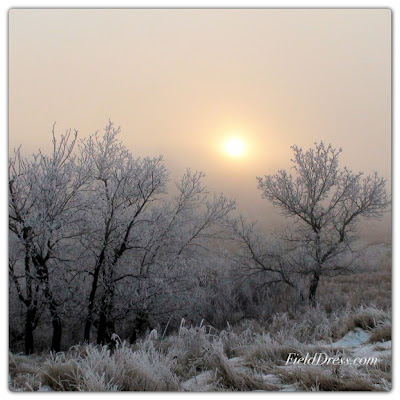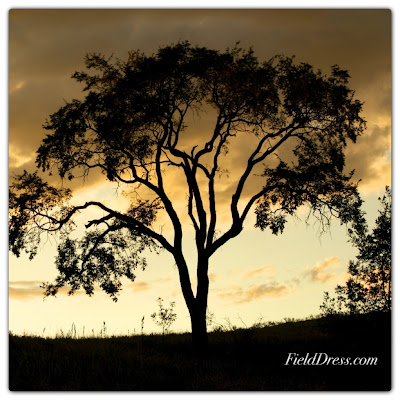
Deer rifle season kicks off Saturday, Nov. 17, and promises as usual to be the biggest day of the year for hunting in Oklahoma.
Last year, rifle hunters accounted for 61 percent of the total deer harvest. Surveys indicate that last year, almost 153,000 hunters took part in the 16-day regular deer gun season alone. When taking into account the youth deer gun and holiday antlerless deer seasons, that number jumps to nearly 196,000.
According to Erik Bartholomew, big game biologist for the Oklahoma Department of Wildlife Conservation, the overall deer harvest this year is down slightly from last year, but antlerless deer harvest is up from where it was this time last year.
That's good news, according to Bartholomew, and hunters also have reason to look forward to the deer gun season opener this weekend.
"Field reports say the rut is ramping up in parts of the state," Bartholomew said. "There's no time like the present. The weather is supposed to be great, so get out there and enjoy the deer woods this weekend."
As Oklahoma moves into what is hopefully another great year for deer gun hunters, personnel with the Wildlife Department are offering information just in time on the most current rutting activity in regions across the state. The rut, or deer breeding season, is a biological process that typically occurs around mid November. Deer activity during the rut picks up, but the amount of activity can be influenced by a host of factors such as day length, temperatures, moon phase and herd condition.
NORTHWEST
The northwest region of Oklahoma is known for big deer and good hunting, and so far Department personnel stationed in the region seem to agree that the rut could be well-timed with gun season.
"The rut should be going good by the opening of gun season," said Thad Potts, wildlife biologist stationed at Canton, Dewey County, Drummond Flats and Major County Wildlife Management Areas (WMAs). Potts as well as others have said that deer rutting behavior in northwest Oklahoma has been slow thus far, with some increased activity in the last few days.
Eddie Wilson, wildlife biologist stationed at Cooper and Ft. Supply WMAs, reports an increase in fresh scrapes, but still little movement during daylight hours.
"Hunter activity will be heavy opening weekend and throughout the week on the WMAs," Wilson said. "If the cool weather holds, bucks will most likely be very active during the entire nine day season, as rut is usually going on strong by the 20th of Nov. in the Woodward area. Hunters can focus on food plots areas and hope a hot doe will bring in a buck."
Wilson's reference to a "nine-day" season is a reminder to hunters that seasons on public lands may vary from the statewide 16-day gun season. For full details and dates for seasons on public lands, including a information on antlerless deer hunting days on both public and private lands, consult the current "Oklahoma Hunting Guide," available free online at wildlifedepartment.com.
Weston Storer, wildlife biologist stationed at Beaver River, Optima, Rita Blanca and Schultz WMAs reports that minimal rutting activity has been noted so far in the Panhandle counties, with a few exceptions of younger bucks "testing the waters." Storer said the majority of corn crops in his part of the region have been harvested and that deer "have been relocating to wheat fields."
"A good direction to start your hunt is to locate well utilized food and water sources to glass," Storer said, adding that if the rut is still not active the bucks may be hitting the wheat fields. "If a cold front starts the rut, the does will be going in the direction of the food sources. And the bucks will be hot after the does."
Larry Wiemers, biologist stationed at Cimarron Bluff and Cimarron Hills WMAs, also has noted a few bucks following does in the past week to two weeks, but heavy rutting activity has not yet been observed.
Northwestern Oklahoma hunters may be in for a treat of heavy deer activity on opening weekend.
NORTHEAST
In the northeast region of Oklahoma, the beginning stages of the rut have been underway, according to Craig Endicott, northeast region wildlife supervisor for the Department.
"Bucks were running hard in early muzzleloader season, but activity appeared to lessen toward the end of muzzleloader season," Endicott said, adding that the rut should peak between muzzleloader and gun season.
Endicott said deer movement has been reported as slow in the mornings and better in the afternoons, with lots of nocturnal activity.
"The weather patterns and moon phase are effecting deer movements but in general, they seem to be feeding on acorns on timbered ridges and benches during the morning and mid day, then moving onto fields/food plots in the late evening," he said. "Deer activity will no doubt pick up with some fronts, rain and cooler temperatures."
Biologists say acorn production was sporadic in the region, but better than anticipated. Some persimmon production occurred as well.
"Hunters need to scout the areas they hunt for deer sign," Endicott said. "Scout for food sources and locate travel lanes, creek crossings or pinch points where bucks may be patrolling to locate a hot doe. Once a good area has been located, hunters must be patient and stay in the woods as long as they can."
On northeast Oklahoma WMAs, successful hunters will need to spend time scouting, but they can find good deer hunting.
"There is good hunting on the WMAs, but with the high usage associated with these areas, hunters need to scout for some less used corners and back areas," Endicott said. "Remember to read up on the specific regulations for any WMA you may be hunting, and be respectful of other hunters."
Endicott also suggests carrying a grunt call to use as a tool for stopping a buck on the move, allowing for a clean shot. Also, be alert for does that are being trailed by bucks.
"Chased does will always act differently, especially looking behind them on several occasions," Endicott said.
SOUTHEAST
Deer gun season hunters may be entering the woods toward the end of the rut in southeast Oklahoma.
"The rut that I'm seeing is in full swing," said Joe Hemphill, southeast region wildlife supervisor for the Wildlife Department. "By the time next week gets here, we probably will be on the backside of the rut."
Still, deer should be on the move.
"They're going to be very active," Hemphill said. "They still have to eat. They're still going to be on the acorns."
Hemphill said lots of bucks are being observed fighting and sparring, and that "there's lots of scraping activity going on."
Hemphill reminds hunters to read the "Oklahoma Hunting Guide" before heading afield, noting any changes that may affect their hunting season. He also notes that that the fall colors in the region are as vibrant as they have been in years.
SOUTHWEST
Forage and water levels are below normal levels in the southwest, and unseasonably warm, dry weather has been dominating the region, according to Rod Smith, southwest region wildlife supervisor for the Wildlife Department. But according to Smith, hunters could see some active rutting on opening weekend.
"Pre-rut activity to date seems to indicate heavy rut activity will likely be in full swing for the opening of rifle season," Smith said. "Younger bucks have made themselves more visible, and hunters in the field report seeing an increased number of scrapes. Bucks have been observed tracking but not yet in full chase mode. Bucks observed mingling with does are showing increased interest, while does remain unreceptive."
Hunters in southwest Oklahoma may want to place greater emphasis on available water and fresh, succulent forage. Food plots on regional WMAs are reportedly in fair condition due to the drought. Wheat is in good enough condition to provide a usable food source. Hunter activity on WMAs has been average or slightly below average, while a number of hunters report they are waiting on cooler weather. Still, Smith said regional businesses such as motels and restaurants have reported normal activity through the muzzleloader season.
With the rut building in intensity, it could be a good time to be a southwest Oklahoma deer hunter.
CENTRAL
"So far, 2012 has been a mixed bag when it comes to rutting activity in the central region," said Jeff Pennington, central region wildlife supervisor for the Wildlife Department. "Most hunters saw higher than normal rutting activity early in the muzzleloader season with the excellent weather conditions. Daytime rutting activity decreased later in the season with warmer weather conditions."
Pennington said the rut picked up again during the first full week of November, with some bucks observed chasing does during the middle of the day. Increased observations of road-killed dear have been observed as well, often a sign of rutting activity.
"The rut will almost always peak in the central region between the tenth and twentieth of November, and this looks like it will be the case in 2012," Pennington said.
Prolonged drought conditions continue in the region. Pennington said the overall deer activity has been higher than normal due to the nutritional stress caused by the drought.
"Despite the dry conditions, patchy portions of the region produced a surprising number of acorns, especially the black oaks along creek drainages (most people will call these red oaks)," Pennington said.
Locations that still have good acorns will be prime hunting spots during gun season as drought stressed deer try to replenish energy reserves. Growth of wheat and other typical cool season foods have been limited by the drought.
"The height of grass and other vegetation is very low again this year, which should make deer highly visible to hunters," Pennington said. "The drought conditions will be tough for the deer, but should make for very good hunting conditions."

























